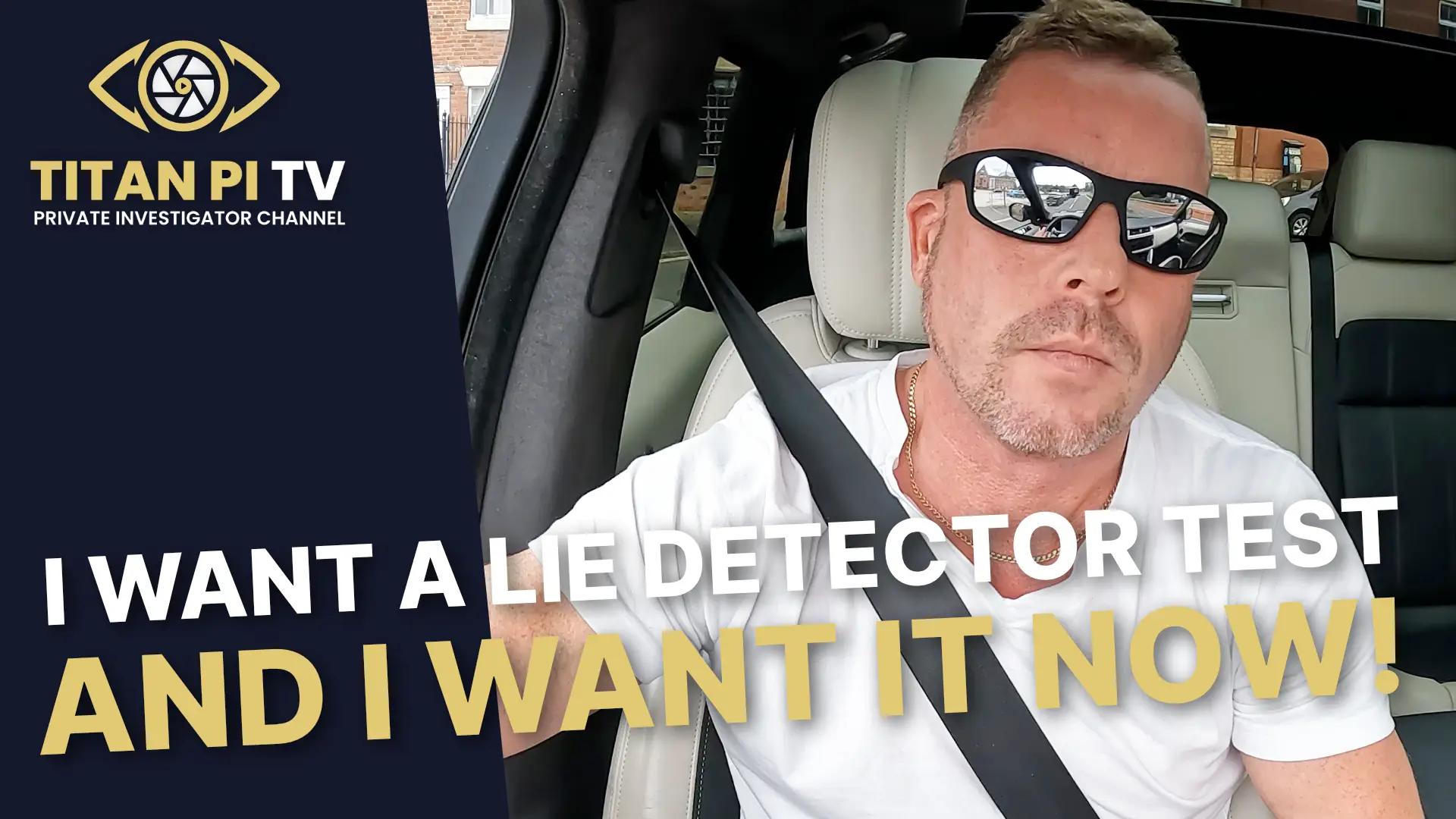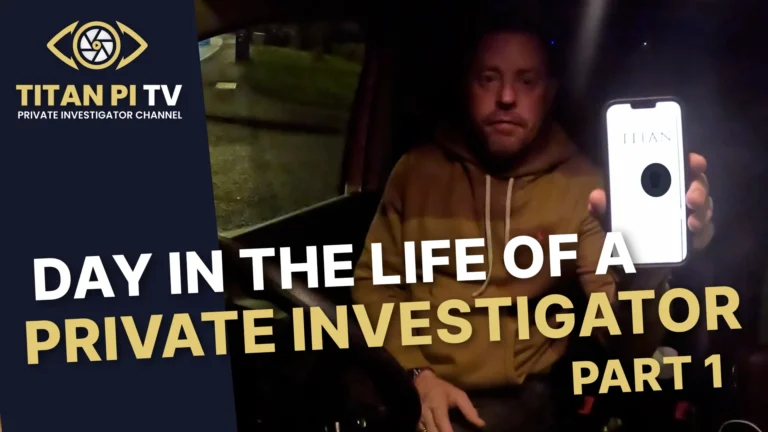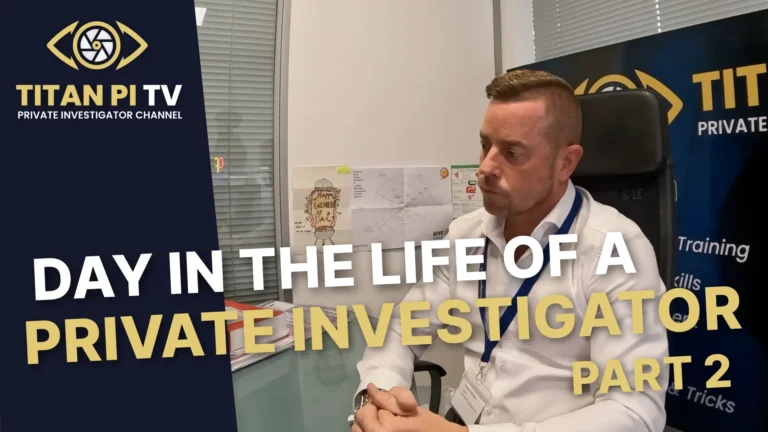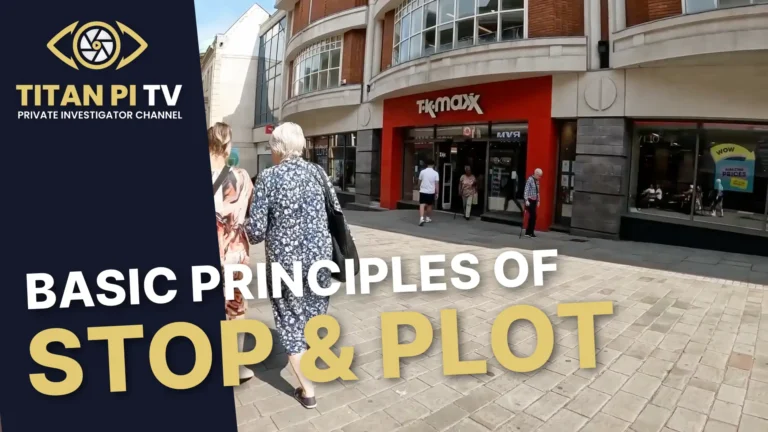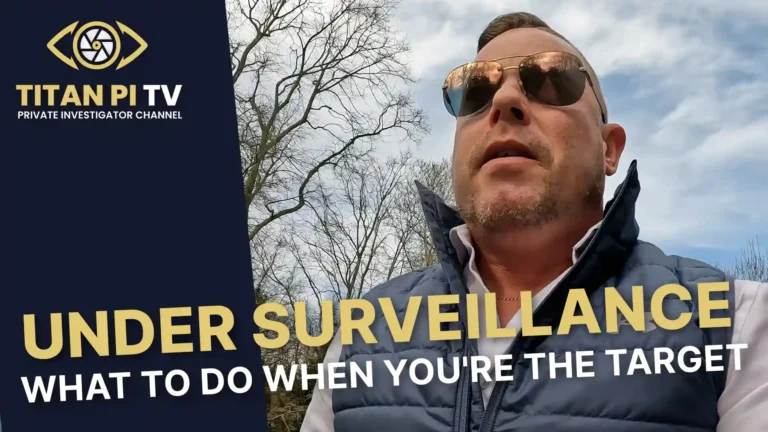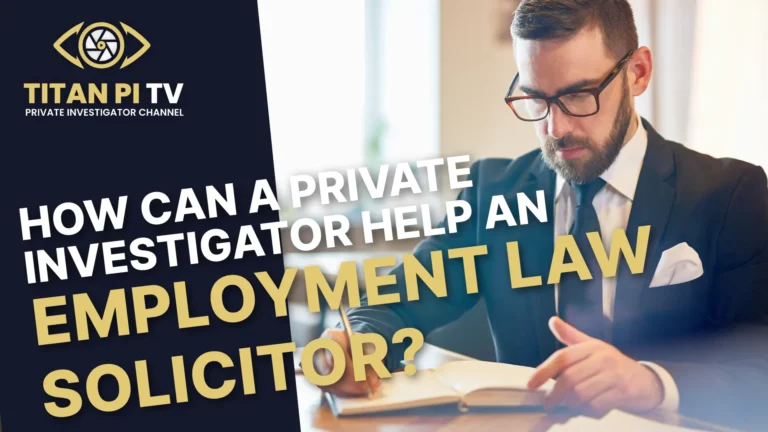I want a lie detector test, and I want it now!
Inside the Lie Detector Process, the Pressure, and the Truth
In the latest episode of Titan PI TV, host and Managing Director of Titan Private Investigation Limited, Simon Henson, lifts the lid on a service that remains in steady demand despite evolving technology and shifting public attitudes: lie detector tests. Broadcast from Titan’s Derby headquarters — one of ten offices stretching from Truro in the South West to Manchester in the North West. The episode explores who seeks lie detector tests, why they want them urgently, and how Titan ensures accuracy and fairness in every assessment.
With national coverage supported by a network of 328 surveillance operatives, Titan is no stranger to high-stakes enquiries. But as Simon explains, few requests match the urgency and emotion that surround lie detection, particularly when private lives and relationships hang in the balance.
The immediacy problem: “I want it now”
“When we get a call around lie detector tests, particularly from a private client, the first thing we hear is: ‘I want a lie detector test. I want it now — today,’” SImon notes. For someone whose relationship is under threat, the urgency is deeply human. Accusations of infidelity can escalate rapidly, and the person seeking the test often believes their reputation, relationship, and even their home life are at risk. That sense of crisis drives many to demand same-day results.
Yet while Titan empathises with that pressure, Henson is clear: rushing a lie detector test is a mistake. “It’s so important to get it right and not just rush it and do it now,” he says. The integrity of the outcome depends on careful planning, precise question design, and a clear methodology. The stakes — personal, professional, and legal — demand nothing less.
Who asks for lie detector tests — and why?
Henson breaks down demand into two broad groups:
- Private clients: “Nine times out of ten it’s a matrimonial issue,” he says. Most enquiries centre on allegations of cheating. The individual taking the test — sometimes the accuser, sometimes the accused — often sees it as a pivotal moment. A verified “truthful” or “deceptive” indication can influence decisions about staying together, seeking counselling, or separating.
- Corporate clients: The immediacy is usually lower, but the implications can be significant. Titan frequently assists companies following internal security breaches. “We’ve done cases where there’s been a burglary at a commercial premise,” Henson explains. When intruders head straight for a covert safe, suspicion turns inward. Staff may be asked to undergo a test to establish who, if anyone, had prior knowledge or passed on information.
In such corporate scenarios, question sets commonly probe awareness, involvement, and benefit:
- Were you aware of the burglary?
- Were you involved in the burglary?
- Have you made any financial benefit from the burglary?
Often, those three questions will cover the field.
Crafting the questions: precision over emotion
The central lesson of the episode is that the power of a lie detector test rests on the clarity of its questions. Emotions are off-limits; facts are everything.
“You can’t ask something about an emotion,” Simon stresses. Questions must be grounded in tangible, verifiable reality. Hearsay is also excluded. If a question relies on information from a third party — “Did someone tell you X?” — then it may be the informant, not the subject, who should be examined.
For matrimonial cases, the structure is similar: keep it simple, direct, and narrow enough to evaluate. Common formulations include:
- Whilst you have been married to X, have you had sexual contact with any other person?
- Whilst you have been married to X, have you had sexual intercourse with any other person?
Where a specific incident is in dispute, a tailored third question may be added:
- When you were in Ibiza in 2009, did you have sexual contact with somebody?
This approach is deliberate and disciplined. The aim is to ensure the test is fair, the language is unambiguous, and the results accurately reflect the subject’s truthfulness regarding precisely defined acts or knowledge.
Why “only three questions”?
Titan’s methodology typically involves up to three core questions per test. “If you want more questions, that’s fine — it’s just a separate test,” Henson says. Six questions, for instance, would usually be divided across two tests. In practice, most objectives can be met within three expertly phrased questions by “being clever around how we word them.”
That limit promotes focus. It reduces ambiguity and cognitive load for the subject and ensures the analytical model has clear, comparable data. It also supports a fair and defensible outcome — particularly important when the results may affect major personal or organisational decisions.
The process: from intake to agreement
A Titan lie detector test isn’t a walk-in service. It follows a structured pathway:
- Initial consultation
- Titan clarifies the client’s objective: What do you need to prove or disprove?
- Identify the subject: Who will sit the test?
- Gather context: What are the relevant facts and timelines?
- Question development
- Titan liaises with the examiner or exam writer to shape the three questions.
- Each question is tested for clarity, factual grounding, and fit for purpose.
- Client validation
- Titan sends the proposed questions to the client for agreement.
- Last-minute changes can cause delays. Henson notes this is common in private cases: even after agreeing the questions, a client may request a change the night before the test. Titan can adapt, but it reinforces why rushing is risky.
- System setup
- Once finalised, the questions are uploaded to the testing system ahead of the session.
This disciplined process protects both the client and the subject. It ensures the test measures what it is supposed to measure and that the outcome addresses the real issue at hand.
The technology: iDetect by Converus
Titan uses iDetect by Converus, an American system introduced in 2017. “It’s not new technology,” Simon notes, “and it’s sort of superseded the polygraph test. It’s cheaper, it’s quicker, it’s easier.” The test itself takes around 30 minutes. Once started, it runs to completion without pauses or restarts — a consistent, controlled protocol designed to preserve test integrity.
The format is statement-based. The subject answers true or false to a series of prompts. Interspersed among the core questions are control items:
- Some instruct the subject to lie so that the system can observe and calibrate their “lie response.”
- Others instruct the subject to tell the truth (“Is 2 + 2 four?”), establishing a baseline “truth response.”
By the time the system reaches the key statements relating to the incident in question — “Did you cheat?” or “Were you involved in the burglary?” — it has modelled the subject’s response patterns under both truthful and deceptive conditions. Henson’s view is unequivocal: “For me, it’s 100% accurate. It will tell us whether you’re being truthful or not.”
Human nature meets hard data
One of the most striking observations in the episode is how often people arrive for a private, relationship-related test with the knowledge that they are being deceptive. “It still surprises me that 90% of people that come for a private test around cheating come knowing they’re lying,” Simon says. The test can become a formal reckoning — not only for the partner who suspects wrongdoing but for the subject who can no longer evade a definitive assessment.
This is one reason the demand persists. In an age of endless messaging apps, social media, and digital breadcrumbs, subjective narratives multiply. Yet when trust breaks down, even abundant data can feel inconclusive or misinterpreted. A structured, standardised test offers clarity when conversations spiral and doubts harden.
Why you should not rush a lie detector test
Henson returns throughout the episode to a central warning: urgency is understandable, but precision is non-negotiable. A rushed test risks asking the wrong question, asking it the wrong way, or overlooking critical context — outcomes that help no one.
“You don’t want to be paying £480 for a test and then realising that the questions weren’t right,” he cautions. Titan’s insistence on a proper intake, careful question design, and client agreement is, in effect, a safeguard against waste, confusion, and mistrust. It’s also a mark of professional standards in a field that, at times, attracts quick fixes and questionable practice.
The psychology of immediacy
The episode implicitly acknowledges the psychology behind the “I want it today” request. In private matters, a lie detector test often represents a turning point — a decisive moment that promises to end ambiguity. That emotional drive towards instant resolution is powerful. But as Henson frames it, the right outcome depends on the right approach. Removing the heat of the moment and channelling urgency into a structured, methodical process is the best way to secure a result that all parties can trust.
Corporate continuity: protecting assets and culture
In business contexts, the value proposition is different but equally compelling. When company property goes missing, intellectual property is leaked, or internal knowledge appears to have aided a break-in, leaders must act. A methodical testing process can help narrow the field of suspicion, validate internal accounts, and deter future misconduct. Used appropriately, it supports a culture of accountability without devolving into a witch hunt. The emphasis, again, is on clearly defined, factual questions that align with a specific incident or policy.
Ethics, expectations, and outcomes
The episode underscores an ethical foundation: fairness to the subject and fidelity to the facts. By excluding emotional or hearsay-based questions and adhering to a consistent procedure, Titan aims to ensure that results are both meaningful and defensible. Clients — whether partners in crisis or companies under pressure — are guided to frame their objectives precisely and accept that the best answers come from the best questions.
For private clients, a truthful result can offer a path to reconciliation or closure. For corporate clients, it can inform both immediate actions and longer-term risk management. In both spheres, the test is not a panacea — it does not replace communication, HR processes, or legal frameworks — but it is a potent tool when used correctly.
Titan Private Investigation Ltd’s commitment to professional standards amid heightened emotions and tight timelines. The message is clear: the enduring demand for lie detector tests reflects a timeless human need — to know, definitively, whether to trust. Meeting that need responsibly requires patience, process, and precision.
What’s Next on Titan PI TV?
Thank you for reading, watching, or listening to this week’s blog post on Titan PI TV. For more expert advice and behind-the-scenes insights, subscribe to Titan PI TV on YouTube or download the Titan PI TV podcast wherever you get your podcasts. If you found this information helpful, please give us a thumbs up and subscribe to our channel. Stay tuned for more insights into the world of private investigations. Until next time, stay safe and keep learning!
Titan PI TV: Uncovering the Truth, One Investigation at a Time.

